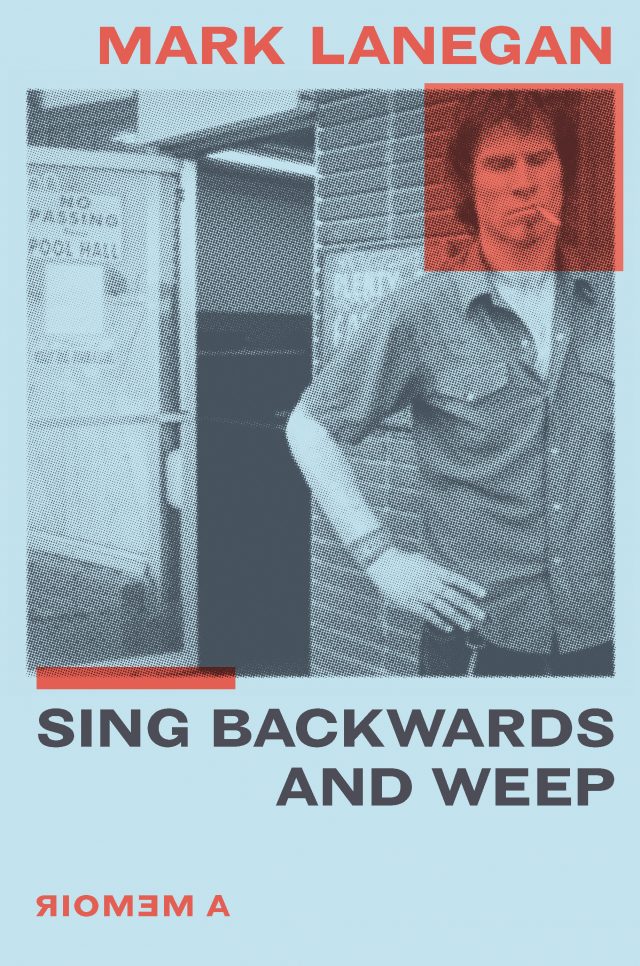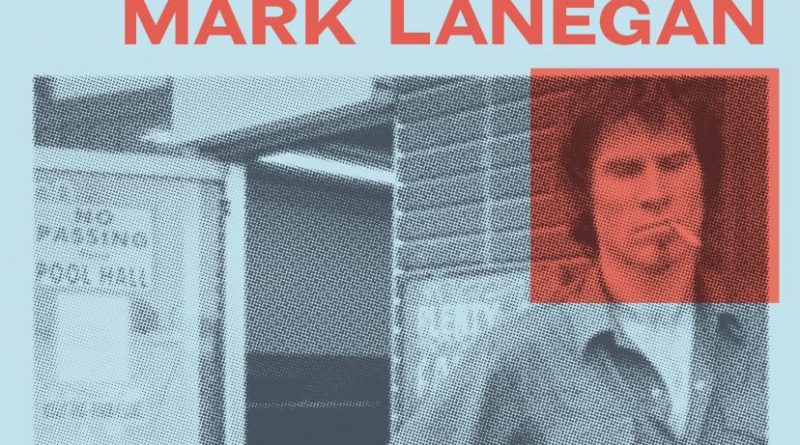Mark Lanegan’s memoir: a story of survival

When I reviewed Mark Lanegan’s I Am the Wolf: Lyrics & Writings for this site in 2017, I wrote that his opening commentary for each section of the book made me wish he’d write a full-fledged autobiography someday. Evidently other people around him were thinking that too, and he finally decided to open up and share some more stories in his new, lacerating memoir, Sing Backwards and Weep (the title is a lyric from “Fix,” on his 2001 album Field Songs).
This is a book that takes no prisoners. The Screaming Trees, on their Facebook page, have taken exception to Lanegan’s harsh recollections of his time with the band (Lanegan said he reached to the group’s members to show them pages of the book in advance, but received no response). Liam Gallagher of Oasis has been similarly aggrieved at being the target of one of Lanegan’s sharp put downs — “I couldn’t believe someone hadn’t beaten, knifed, or shot him to death by now, such was the reckless, witless, and despotic nature of his insufferable façade” — though I’d guess most people would find it amusing (especially since it’s Liam, not Noel). There are numerous other folks that come into his firing line as well (Jason Finn, Jason Woods, his own mother).
But the person Lanegan is hardest on in his book is — himself. He never excuses his behavior, and never asks for sympathy. Indeed, he laughs at his mishaps. When he vows that he’ll never end up like one of those sad junkies who are forced to take up dealing in order to support their own habit, you know that’s exactly where he’ll end up. And he does.
But though the story is certainly bleak at times, it’s not without humor. For all the tale’s angst, it’s funny to learn that Screaming Trees came together because of the Connor brothers mother scolding her son: “Lee! You get out here and take Mark into your room and show him your songs!” Yet the relationship between the two was antagonistic from the beginning. “I tried my damnedest to be friendly with [Lee], but it was like talking to a stone,” Lanegan writes. It was a tension that was evident even in public: “Violence had been an occupational hazard of the Trees live performance from the very beginning.” It also speaks to how isolated Ellensburg was; had Mark lived in a larger city, he might well have moved on to join another group of musicians in town, and the Trees would’ve stalled before they really got going.
Which is a theme that gives this book a broader appeal beyond Trees/Lanegan fans. It’s an inside view of the development of the Seattle scene, and how it grew up in isolation as well, taking you back to that period in the 1980s, when it was more prestigious to be on California-based SST, not the homegrown Sub Pop label.
And Lanegan reveals that Northwest music history might just have been substantially altered had a young Krist Novoselic not taken his advice. When Nirvana first played Ellensburg in 1988, the Trees were in need of a new bassist, and, on seeing the six-foot-seven-inch Novoselic take the stage, Lanegan considered asking him to join his band. But he found the performance overpowering, and struck up a friendship with Kurt Cobain that same night. So when Novoselic telephoned him saying he wanted to quit Nirvana because he was tired of Cobain’s dominance, he didn’t want to break up a good thing, telling Novoselic, “If I were you, I’d get past your problems with Kurt and make it work. You guys have got something special there.” Imagine how different things could have been….
Lanegan became particularly close to Cobain, and Layne Staley as well, and his grief at their deaths is still palpable. What’s especially sad is that the bond between these three artists was not only due to their shared love of music, but also their shared love of doing drugs. It’s clear that Lanegan expected to meet their same dark fate, and his hellish journey is such that you’re amazed that he didn’t. It’s a descent into despair that makes the book’s latter half especially harrowing. Though even when he’s at death’s door, Lanegan’s black humor comes through, as in this vivid description of withdrawal: “An experience that I felt must be akin to being gang-fucked nonstop by Satan’s hordes for three full days and nights — and not in a good way.” Lanegan has said that writing his story was so draining, he has no interest in doing a sequel. And after what he’s lived through, you can hardly blame him. But he’s also a powerful and entertaining writer. So let’s hope this isn’t the last we’ve heard from him as an author. If Sing Backwards and Weep is any indication, he’s probably got a raft of other stories waiting to be told as well.
(Sing Backwards and Weep is available now at Hachette Books.)

